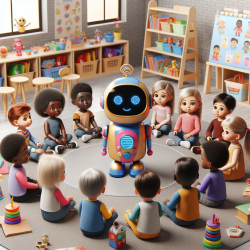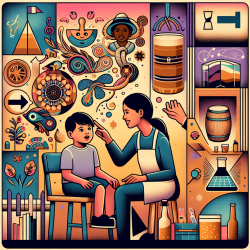As practitioners in the field of speech-language pathology, we continuously seek innovative ways to enhance children's language development. A fascinating study titled A Long-Term Study of Young Children's Rapport, Social Emulation, and Language Learning With a Peer-Like Robot Playmate in Preschool offers valuable insights into how peer-like robots can play a significant role in this endeavor.
The study, conducted by Kory-Westlund and Breazeal, examined the effects of a social robot on preschool children's language learning over eight sessions. The robot, designed to act as a slightly more advanced peer, engaged children in storytelling activities. The results revealed that children who interacted with the robot showed significant improvements in their vocabulary and language use.
Here are some key findings and actionable insights from the study that practitioners can implement to improve their skills and outcomes for children:
- Rapport and Emulation: The study found that children who developed a higher rapport with the robot were more likely to emulate its language. This suggests that building a strong rapport with children can enhance their language learning. Practitioners should focus on creating a positive and engaging environment to foster rapport.
- Personalization: The robot personalized its storytelling to match the child's language ability, leading to better vocabulary acquisition. This highlights the importance of tailoring language activities to each child's current skill level. Practitioners should assess children's language abilities and adjust their interventions accordingly.
- Storytelling as a Tool: Storytelling was used as a primary method to promote language development. Practitioners can incorporate storytelling into their sessions, encouraging children to create and share their own stories, which can help in vocabulary building and language use.
- Long-Term Interaction: The study emphasized the benefits of long-term interaction. Consistent and repeated sessions with children can lead to better language outcomes. Practitioners should aim for regular and ongoing engagement with children to maximize language development.
By integrating these findings into practice, speech-language pathologists can create more effective and engaging interventions that leverage the power of social interaction and personalized learning.
To read the original research paper, please follow this link: A Long-Term Study of Young Children's Rapport, Social Emulation, and Language Learning With a Peer-Like Robot Playmate in Preschool.










